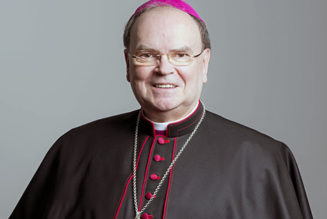As research continues to expose the catastrophic consequences of unreflective social media use—especially but not only for the young, we realize it is emblematic of a deeper problem affecting all of us. Most troubling is that this problem is so normal and so fostered by common attitudes and practices that it grows unnoticed. What is this problem?
We consistently turn our attention away from where it belongs. Put otherwise, we live in varying degrees of distraction from what really matters right now in our life. In this splintering within our reason and will and our attention and affection, we are enervated and unstrung. Our relationships suffer. Real peace escapes us.
This affects even, perhaps especially, the serious and well-intentioned. We are designed to be concerned about and so attend to the needs and desires of people around us. But what if we are literally bombarded with the life-stuff (be it good or bad, beautiful or ugly, serious or banal) of numbers of people beyond a reasonable measure—beyond a ‘human scale?’
In a remarkable commentary on Christ interacting with his disciples in the presence of a great multitude, Thomas Aquinas writes that we see “his maturity, for he is not distracted by what does not concern him, but is appropriately concerned with his disciples.” I am not a theologian and make no claim to give a satisfactory account of this stunning statement—which certainly could be misunderstood. But I think perhaps we can say this: it takes maturity to recognize and enact the human scale of life. The Latin text translated here as ‘not distracted’ could be literally rendered ‘he did not turn his eyes this way and that,’ but rather remained focused on those sitting with him.
Maturity. To keep one’s eyes focused where they should be; to attend to what calls for attending.
It goes without saying that Christ attended also to the multitude. (I find myself wondering: perhaps when Christ attends to people it is never so much to a ‘multitude,’ but rather to one as sitting right before him.) There are times for us to attend to the various things and people in our life. But maturity demands that such attention be properly limited, i.e., focused, according to the real demands of human scale. Otherwise nothing and no one will receive the ‘attention’ needed.
But so much today actively draws us, can seem to force us, to attend to too many things and people out of context. Texting, emails, and social media bring the life issues of numerous others before our eyes without respect of the times and spaces necessary to attend to what should concern us here and now. Pedalers of ‘news,’ in the guise of presenting what we ‘need’ to know, constantly distract us from what is before us. News is all-pervasive, always a click away when not actually popping up on computer or phone, and so it often dominates our conversations and even the inner sanctuary of our minds.
We can re-focus. The very word focus implies that our depth of field is limited. We must, with humility and tenacity, turn our attention away from some things in order really to see other things. We leave aside certain things not because they are unimportant, but because this is not their time. The word distraction etymologically implies drawn out or spread out too far–away from where we should be.
Aquinas’s notion of maturity takes us to the heart of human life, and in a sense I even dare say divine life: it is always a being-present-in-the-now. Undistracted, as it were. Not surprisingly, this masterpiece takes cultivation and so awareness of its specific demands. It is our privilege and calling to seek such the maturity of not-being-distracted by what does not concern us, so as truly to see and enact what does. ~ ~ ~
LATEST PODCAST is Optimizing the Role of Grandparents in Children’s Lives Join Sofia and me in delving into grandparenting, in its principles and details! Check out and share our other PODCASTS too.
NEXT LIFECRAFT ONLINE READING: Wendell Berry’s essay: The Pleasures of Eating. Join us to discuss this provocative essay about the place of eating in every household. Wednesday September 4th, 8:30pm EDT SIGNUP HERE
GARDEN UPDATE. Remember, you can ‘subscribe’ to the LifeCraft channel for more video content.
Husband, father, and professor of Philosophy. LifeCraft springs from one conviction: there is an ancient wisdom about how to live the good life in our homes, with our families; and it is worth our time to hearken to it. Let’s rediscover it together. Learn more.









